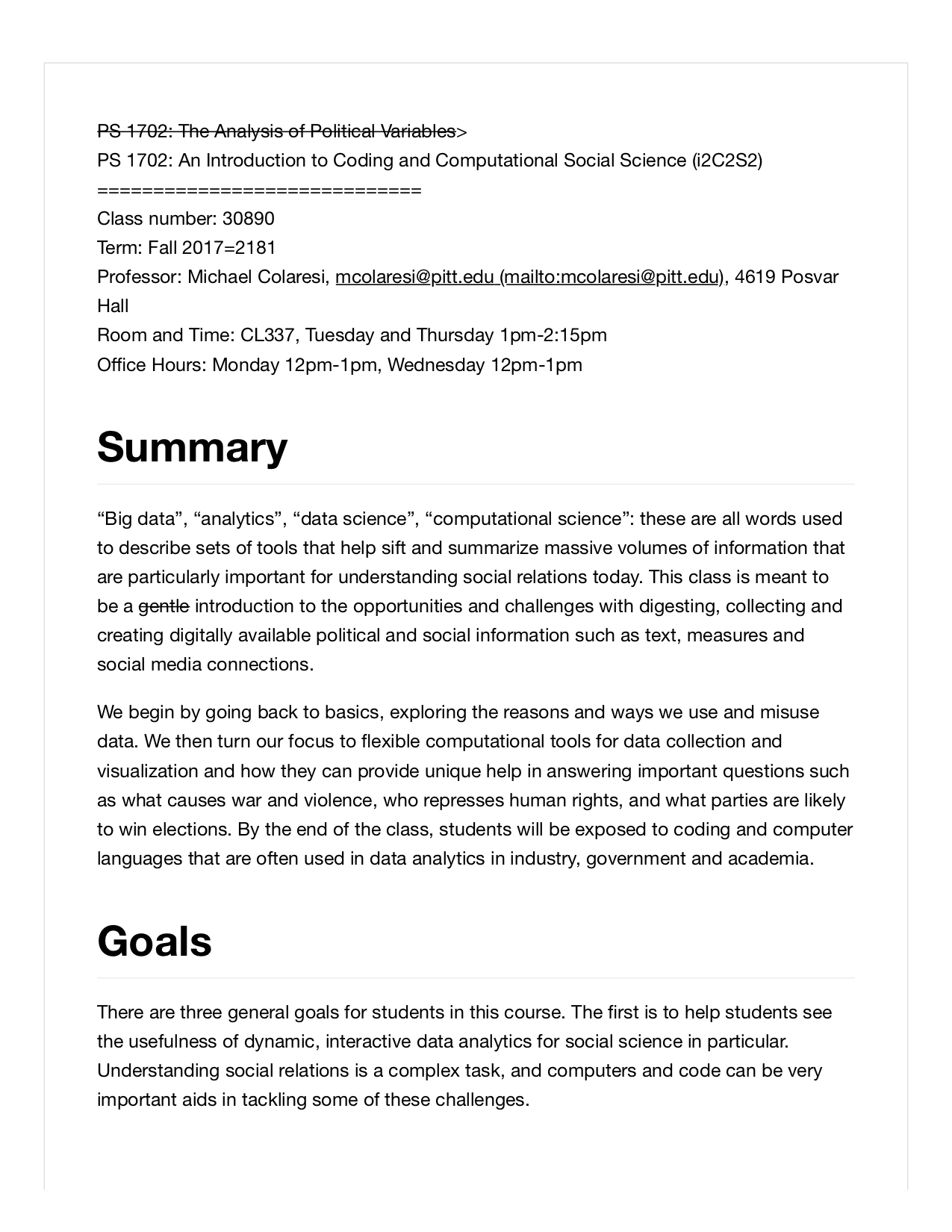When in the classroom I strive to creatively teach complex concepts and prepare students both for their future jobs as well as to be informed citizens. Through active learning opportunities and the visualization of concepts, I have attempted to provide significant value-added in my classes such as Introduction to Computational Social Science, Theories of War and Peace, Bayesian Inference and Text Analytics. In my experience, students learn best when they are thrown slightly off-balance and are in a mode to question what they had previously assumed. For example, teaching counter-intuitive concepts like gains-from-trade, the benefits of biased mediation, as well as topics that reflect bounded rationality such as framing effects, immediately draw student attention and these topics are often the ones that students rarely miss on exams. Similarly, in graduate classes, notions of variance-bias tradeoffs, overfitting, and asymmetric cost functions spark keen interest and retention.
Additionally, I have attempted to design active learning and small group activities in classes to challenge students. In my seminar on Theories of War and Peace, I run a series of simulations that allow students to play out frameworks of international relations as if they are a board game. In my larger lecture classes, I attempt to break-up lectures with small, neighborhood assignments. Students are given five minutes to work with their neighbors to discuss a concept or puzzle and then are called upon to discuss their decision-making process. I have found that these small group assignments help draw students that might not necessarily raise their hands in a class of 200 into the discussion, since they have vetted their ideas.
I frequently include math and coding lessons in both undergraduate and graduate discussions, where appropriate. The weaving of math with the informal analysis of political concepts allows the student to see what is and is not of use in the process. Too often informal theory is walled off from empirical specifications, and vice versa. For undergraduates, the lessons are less complex but similar. By pushing these boundaries, our students can be competitive in graduate school and beyond. The calculation of expected utilities and probabilities helps us avoid costly mistakes. This is as true for students as it is for presidents and prime ministers. I have found that attempting to teach something like optimization and Bayes rule first without math, and then adding math, illuminates how much simpler the concepts are to understand with formal tools.
At the undergraduate and graduate levels, I find research projects to be a key component of my teaching in international relations and computational social science. For example, I have taught graduate courses on advanced time series analysis, regression analysis and Bayesian methodology and run workshops on text-as-data, Bayesian Inference, matching and spatial autocorrelation for MA and PhD students here at the University of Pittsburgh, at Michigan State University as well as at the University of Mannheim. I have also worked with advanced undergraduate students on regression analysis in applied research settings and coding in Python, R, JAGS, and more recently in Stan. In all of these classes, my research interests help provide examples of how the tools of research need to be crafted for the task at hand.
I am proud of my teaching evaluations, as well as the career trajectories of former students. Recent undergraduate students have gone on to success in careers in law, the intelligence community and the U.S. State Department. In addition, my most recent graduate students have been placed at tenure track jobs including at the University of Louisville, Mississippi State, Lenoir Rhyne College, and Kyunghee University and have received post-doctoral fellowships at Trinity College-Dublin.
University of Pittsburgh
Text as Data | Graduate | Spring 2019


